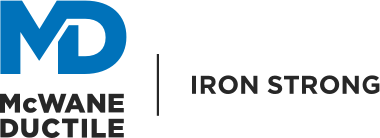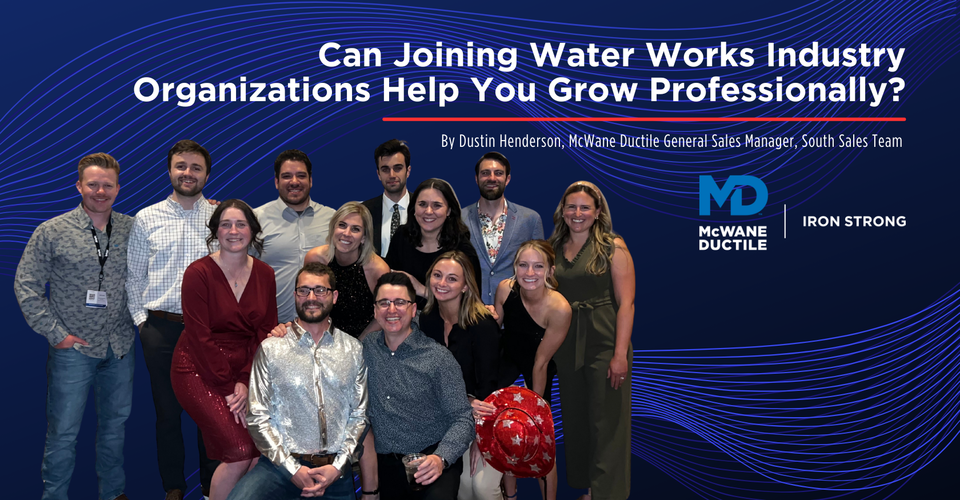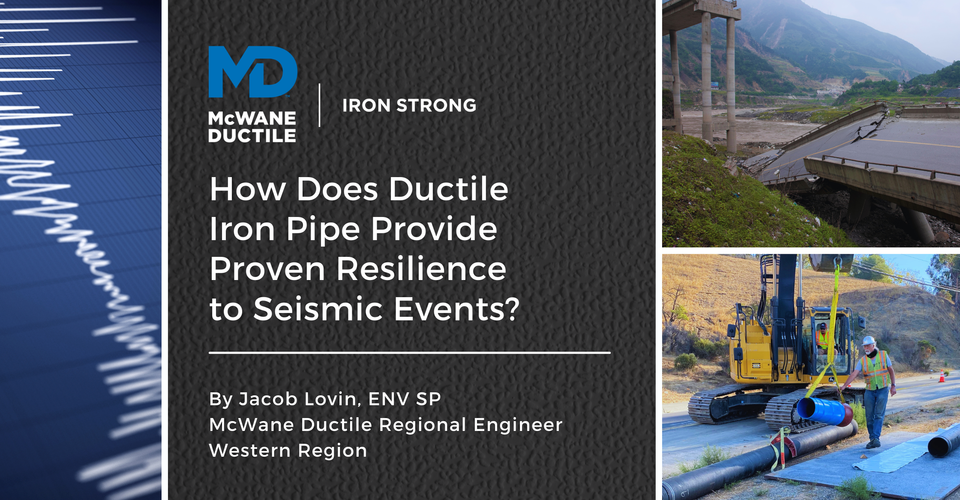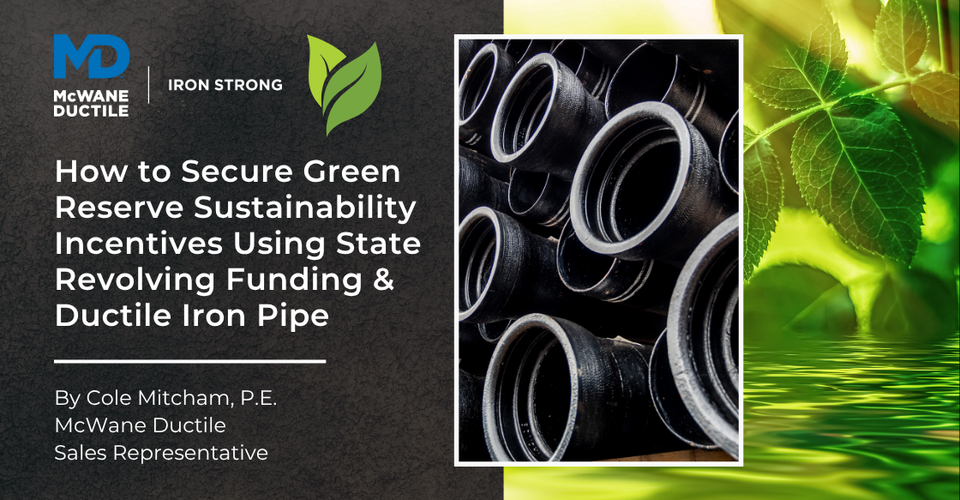Disclaimer: This is intended to be a general summary and not legal advice. Please consult the actual language of the laws, rules, and regulations and seek the advice of an attorney.
What is the Build America, Buy America Act (BABA)?
In 2021, President Biden signed into law the Infrastructure Investment and Jobs Act, which included the Build America, Buy America Act (BABA); however, the Office of Management and Budget (OMB) only recently (August 2023) published final guidance implementing BABA, which went into effect October 23, 2023, and can be found on the Federal Register website here. In short, BABA establishes domestic content requirements for Federal financial assistance for infrastructure projects. In other words, if a project receives Federal funding for an infrastructure project, then the project must purchase and install "domestic" products that meet the requirements of BABA.
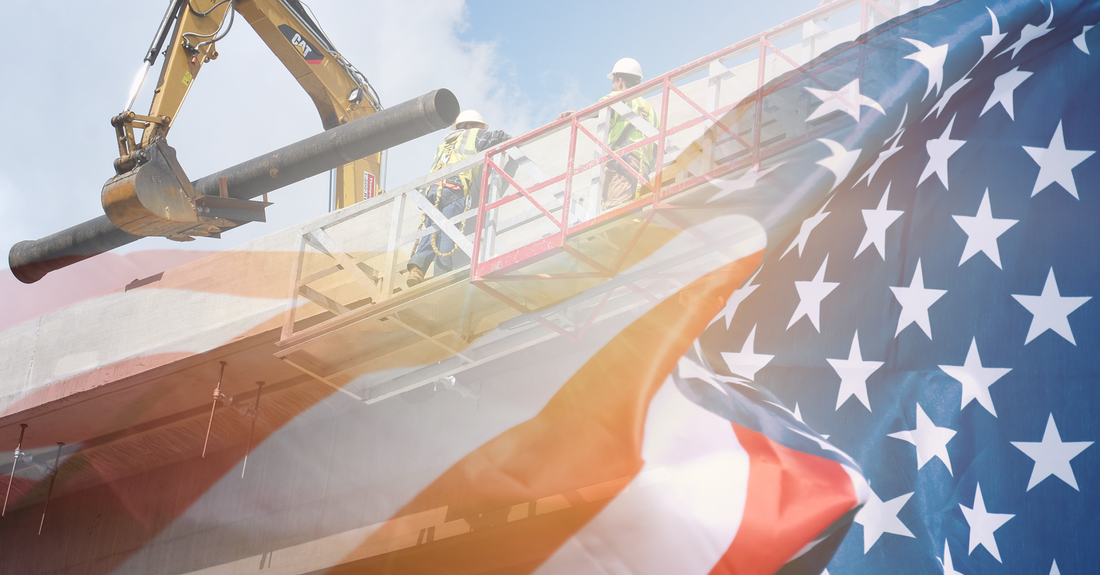
So, What are the Requirements of BABA?
First, it is essential to remember that BABA only applies to Infrastructure, which is very broadly defined and would almost certainly cover water infrastructure projects. It also only applies to items permanently incorporated into an infrastructure project and does not apply to equipment and furnishings, such as movable chairs, desks, and portable computer equipment, used at or within the project but not permanently affixed or incorporated into the structure.
The next step is to determine which product category the item falls under, as BABA divides everything into the following four categories:
(1) iron or steel products;
(2) construction materials (non-ferrous metals, plastic and polymer-based products, glass, fiber optic cable, optical fiber, lumber, engineered wood, and drywall);
(3) Section 70917(c) materials (cement and cementitious materials; aggregates such as stone, sand or gravel; or aggregate binding agents or additives); and
(4) manufactured products.
It is important to note that items and materials can only fall into one of these four categories and cannot fall into multiple categories. This determination must be made based on the item's status when brought to the work site for incorporation into the infrastructure project. This categorization is essential, as each category has separate domestic content requirements.
Once you determine which category the item falls under, you must determine whether the item meets the domestic content requirements. For iron or steel products, in order to be "produced in the United States," all manufacturing processes for the iron or steel, from the initial melting stage through the application of coatings, must occur in the United States. There is a similar "all manufacturing processes" standard for construction materials, but there may be a specific standard for each construction material.
For example, the manufacturing processes for non-ferrous metals, plastic, glass, and drywall differ, and the definitions attempt to address those differences. For manufactured products, which is essentially anything that does not fall squarely into the other three categories, it is produced in the United States if:
(1) the product was manufactured in the United States, and
(2) the cost of the components of the manufactured product that are mined, produced, or manufactured in the United States is greater than 55 percent of the total cost of all components of the manufactured product.
What Has Changed for Ductile Iron Products?
Not much has changed regarding McWane Ductile and our Ductile iron pipe products. McWane Ductile's products are predominantly iron and steel, and all the manufacturing processes for such iron and steel, from the melting to the coating, will occur at our foundries right here in the United States. However, regarding domestic content requirements generally, the larger infrastructure industry, and Federal financial assistance programs, BABA changes everything. BABA significantly expands the types of products affected by domestic content requirements and the number of Federal financial assistance programs that now include domestic content requirements.
Prior to BABA, generally speaking, there were three main ways domestic content requirements would arise:
(1) the American Iron and Steel Requirements (AIS), which apply to specific funding programs implemented by the Environmental Protection Agency (EPA), for example, Clean Water State Revolving Funds or Drinking Water State Revolving Funds, or the United States Department of Agriculture's Rural Utilities Service Water and Environmental Programs;
(2) the Buy America requirements as implemented by the Department of Transportation and its administrations (e.g., Federal Highway Administration and Federal Transit Authority); and
(3) the Buy American Act, which applies to direct Federal procurement. Fast forward to today, and BABA now expands domestic content requirements to all Federal financial assistance for infrastructure projects.
Furthermore, unlike AIS, which focused solely on iron and steel, BABA now potentially applies to anything permanently incorporated into infrastructure projects.
So, what happens to AIS, Buy America, and the existing statutes? Section 70917(b) of BABA expressly states that BABA does not affect existing laws meeting the requirements of BABA. Furthermore, the EPA has already said in its implementing guidance that AIS will continue to apply, and the DOT/FHWA has already stated the same in its Q&A concerning Buy America requirements. As a result, certain agencies will continue to apply existing laws, like AIS, Buy America, or the Buy American Act. Still, they will also need to determine which programs do not meet the requirements of BABA, and we could potentially end up with a situation where both AIS and BABA apply or both Buy America and BABA apply.
Another noteworthy difference is that the OMB has given each Federal Agency significant discretion in implementing BABA. This will take the form of guidance and rules implementing BABA, but each Federal Agency is also tasked with issuing its own waivers. If you are familiar with AIS, then you may be familiar with the EPA's "Minor Components" waiver, which permits up to 5% of the total cost of all of the components for foreign miscellaneous minor components in an otherwise domestic iron and steel product, or the EPA’s “De Minimis” waiver, which permits up to 5% of the project’s total material costs to be exempt, provided the project sponsor keeps documentation as to the exempt items. Because each Federal Agency will have discretion as to implementing BABA and issuing waivers for BABA, thus far, we have yet to see much consistency in terms of the implementation across agencies.
In other words, the requirements of BABA could mean different things depending on the Federal Agency or Federal financial assistance program funding the project. For example, the EPA has issued a minor components waiver for BABA, but the DOT and other Federal Agencies have yet to issue a similar waiver. As a result, an iron or steel product that was 95+% domestic would meet the BABA requirements in the eyes of the EPA but would not meet the requirements in the eyes of the DOT.
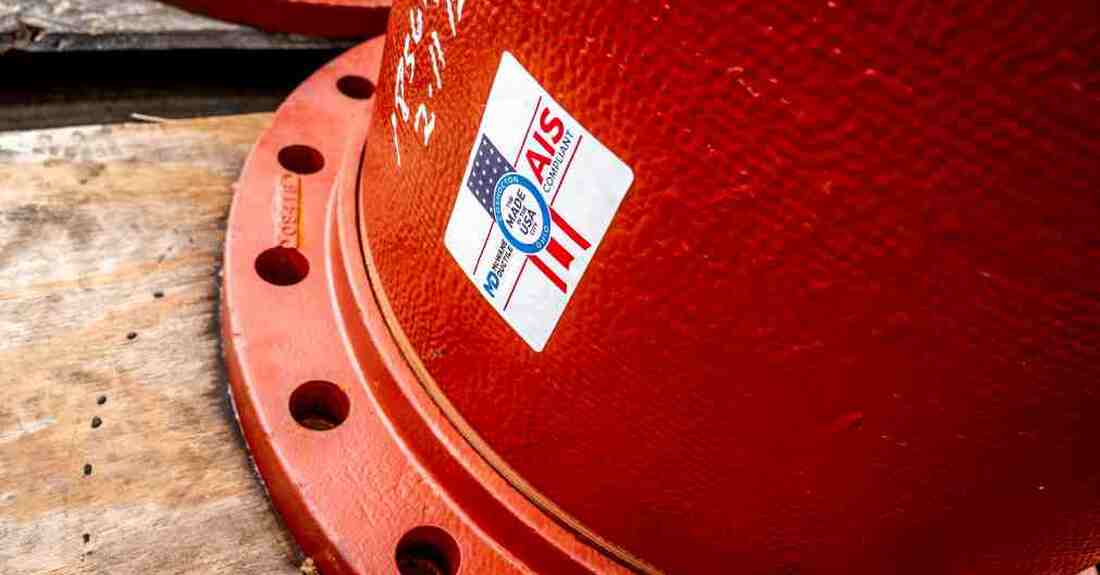
Where Do We Go From Here?
Because the OMB has given significant discretion to each Federal Agency, thus far, there have been considerable inconsistencies in how it is being implemented across agencies. Therefore, it is imperative that project sponsors, engineers, contractors, and distributors understand
(1) what Federal Agency is involved in the applicable project,
(2) what Federal financial assistance program is providing the funding, and
(3) the timing of the award or grant. First, if there are different BABA requirements, depending on the Federal Agency or Federal financial assistance program, manufacturers will need a clear understanding of those facts to provide a certification.
Furthermore, as BABA's guidance, waivers, and implementation have been rolled out piecemeal over the last two years, many of the waivers or implementation guidance have effective dates that may or may not apply to the project, depending on the timing of the award or grant.
How Does This Affect Your Ductile Iron Pipe Purchase?
As noted earlier, it only introduces a few changes in our sector of the waterworks industry. All our pipes are manufactured in our three domestic manufacturing facilities in Provo, UT, Coshocton, OH, and Phillipsburg, NJ. The areas we will want to ensure we have covered before ordering material will be with accessories. We will want to make sure we know if the gaskets and any TR Flex® Kits must be domestic or not since we offer both domestic and non-domestic options in each of those products and, as above, depending on the funding agency and federal assistance program, both could be acceptable at different times.
The key to navigating all this is time and communication. If you are quoting a project, you must communicate with your local sales representative the answers to the questions below:
(1) what Federal Agency is involved,
(2) what Federal financial assistance program is funding the project, and
(3) what is the timing of the award so that we can help you navigate the requirements?
We are also happy to provide any certification needs for your BABA, AIS, Buy America, and Buy American Act projects. Upon receiving a Purchase Order, we must identify which certificate you need so that they can be prepared, and you can be assured that McWane Ductile supplies the correct products for your project.
Need Assistance with Your Waterworks Project?
If you have any questions regarding your water or wastewater infrastructure project, be sure to reach out to your local McWane Ductile representative. We have team members who've managed small and large water utility systems, served in engineering consulting firms, and bring decades of experience in solving field issues involving pipeline construction and operation. From design to submittal to installation, we strive to educate and assist water professionals throughout the water and wastewater industry.
